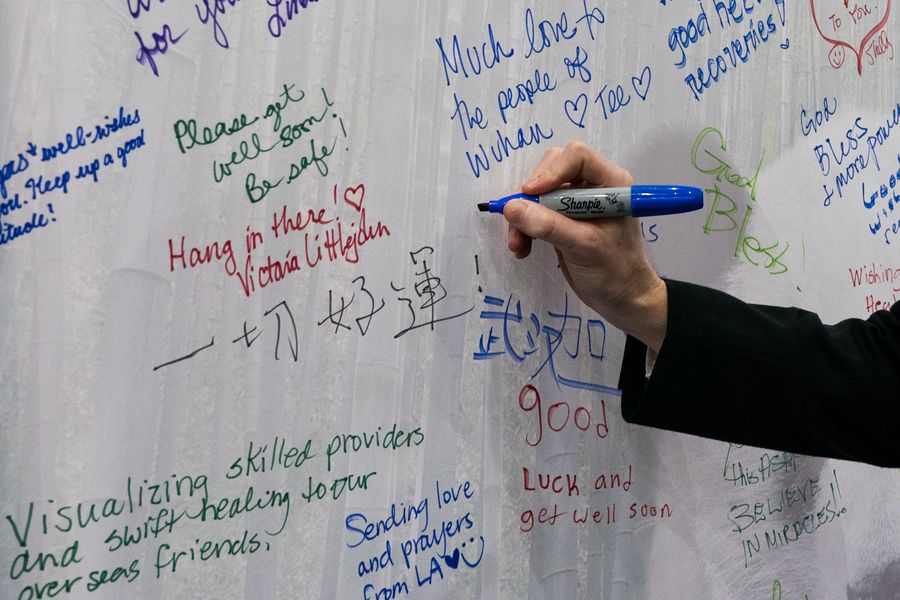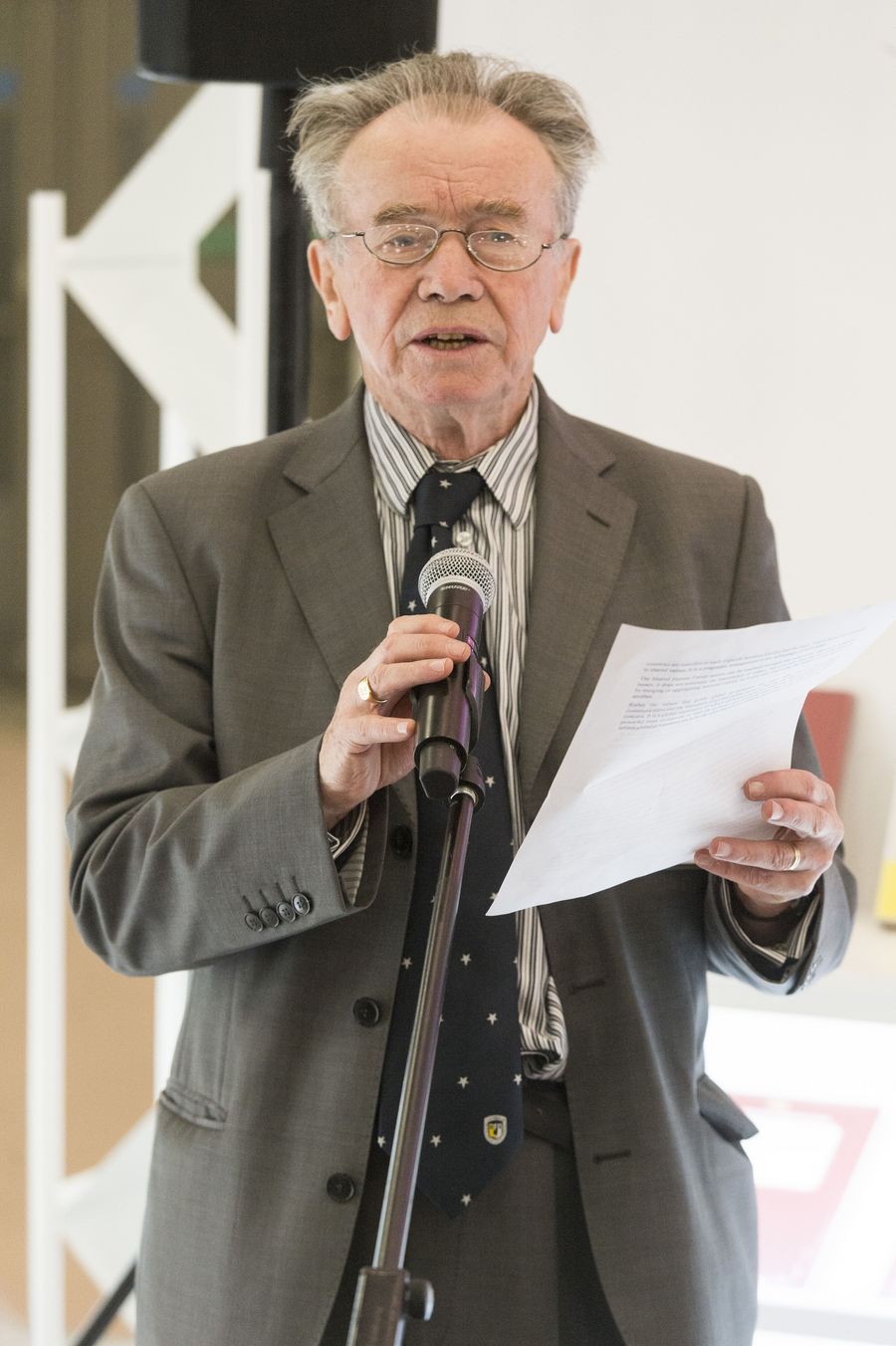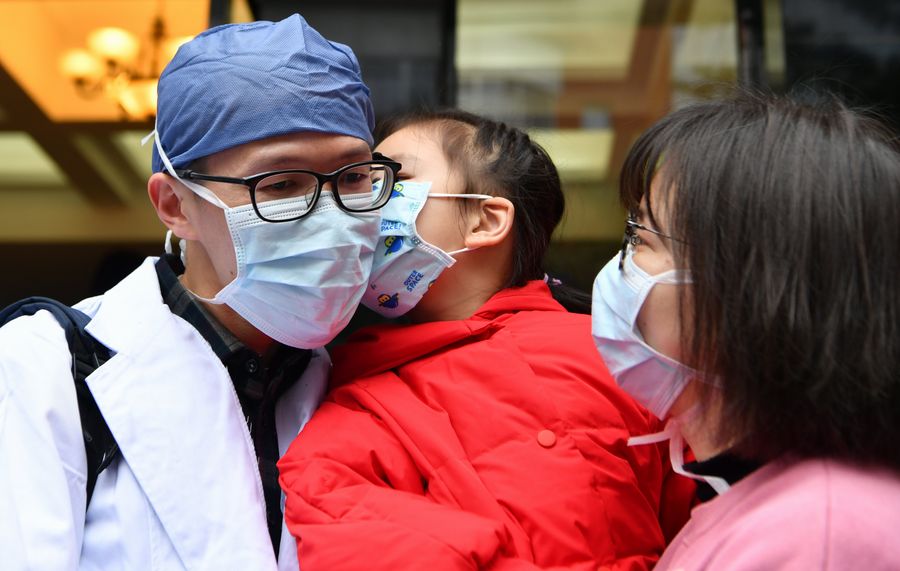
A visitor writes down words in support of China's fight against the novel coronavirus at the annual Los Angeles Travel & Adventure Show in Los Angeles, the United States, Feb. 15, 2020. (Photo by Qian Weizhong/Xinhua)
"Something like coronavirus, or in a previous time, SARS, for instance, requires a global response because the virus doesn't respect national boundaries," the British sociologist told Xinhua.
by Xinhua writers Zhang Dailei, Gui Tao and Larry Neild
LONDON, Feb. 18 (Xinhua) -- It is in times of global crisis, like the current outbreak of the novel coronavirus disease (COVID-19), that human beings can best realize their common humanity and shared common interests, said world renowned sociologist Martin Albrow.
In a recent interview with Xinhua, the 82-year-old British academic said disasters show how dependent we are on each other "in a worldwide sense," and thus demonstrate the need to build a community with shared future for mankind, a concept that was forged and developed by China.
He commended China for its responses and efforts to global challenges such as the outbreak of the virus, saying there is no way the rest of the world can ignore the COVID-19.

File photo shows British sociologist Martin Albrow delivers a speech at a special book launch event to mark the 70th anniversary of the founding of the People's Republic of China and the 65th anniversary of the establishment of the China-Britain diplomatic relations at the level of charge d'affaires, in London March 12, 2019. (Xinhua/Ray Tang)
"Something like coronavirus, or in a previous time, SARS, for instance, requires a global response because the virus doesn't respect national boundaries," he told Xinhua, adding that he does not share the view that China has been slow in responding to the COVID-19.
"I think the Chinese response has been entirely appropriate," he said. "Chinese health workers are working overtime and at great cost to themselves. Many health workers are putting themselves in danger when they are actually treating people who are suffering from the virus."
"I'm quite sure that in China today there is huge support for the workers who are handling this terrible crisis. And I believe the rest of the world too, will be looking to China and recognizing what enormous efforts the Chinese people are making for each other," said Albrow, also fellow of the Academy of Social Sciences.

Medical team member Lin Kai (L) bids farewell to his family before leaving for Wuhan of central China's Hubei Province at the Affiliated Union Hospital of Fujian Medical University in Fuzhou, southeast China's Fujian Province, Feb. 13, 2020. (Xinhua/Wei Peiquan)
Albrow, who is renowned for his works on globalization and civil society, said he hopes the COVID-19 outbreak can help bring the world together in the fight against the virus, producing a vaccine, and eventually overcoming it.
"That, in a sense, will contribute to the shared future for mankind," he noted.
Speaking of building a community with shared future, Albrow said people-to-people communication is fundamental in a world society where people are increasingly inter-dependent, with connectivity increasing all the time.
"We should do everything to facilitate communication between people across borders, to create a much better general understanding of different cultures, different customs and so on. This can't be done through governments building walls between countries," he said. ■



